Worldwide
When you sleep with an elephant and that animal cocks its leg to fart, you have a right, indeed an obligation, to register an objection.
Canada and Austria have much in common. Both countries share a border with an economic powerhouse, ten times their size, economically and by population. What happens politically in our respective neighbouring countries, affects Canadians and Austrians profoundly.
The effects of sleeping with an elephant was material in 1938, and it is increasingly relevant today.
While we were touring central Europe, we kept one eye on the past, and the other on current political affairs.
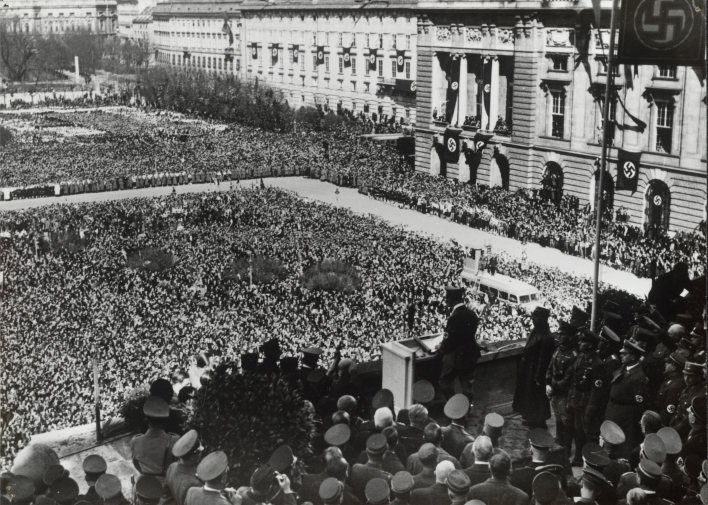
German Führer, Adolph Hitler, addressing the Austrian people, on the occasion of Germany’s annexation of Austria, 15 March 1938.
A consequential Presidential debate occurred in the US, while we were traveling in Europe. The outcome of the US election will profoundly affect Canadians, and the rest of the world.

Drawing comparisons between Nazi Germany and modern political circumstances happens all too frequently in the hyperbolic times we live. Comparisons are generally over-simplifications, or gross exaggerations, for political purposes, but having goose-stepped in Hitler’s footsteps the past two weeks, I am willing to risk the fallout and make a few comparative observations.
On our first day in Vienna, we stood on Heldenplatz, the plaza where Hitler gave his infamous Anschulss speech in 1933. Photo records of the event show 200,000 admirers offering cheers, and the famous straight-arm salute.
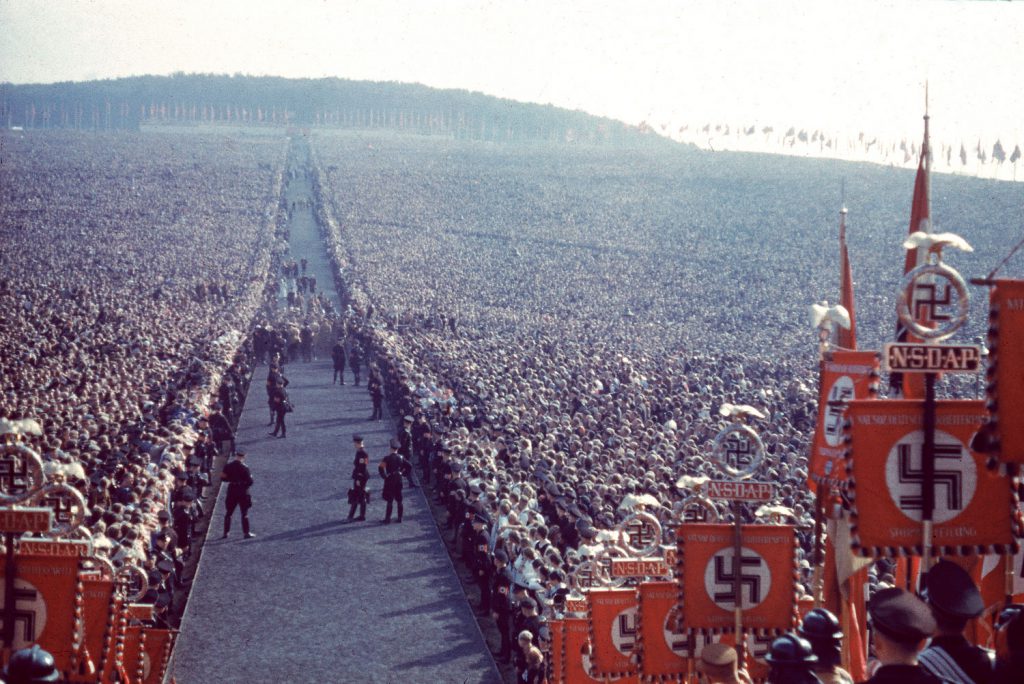
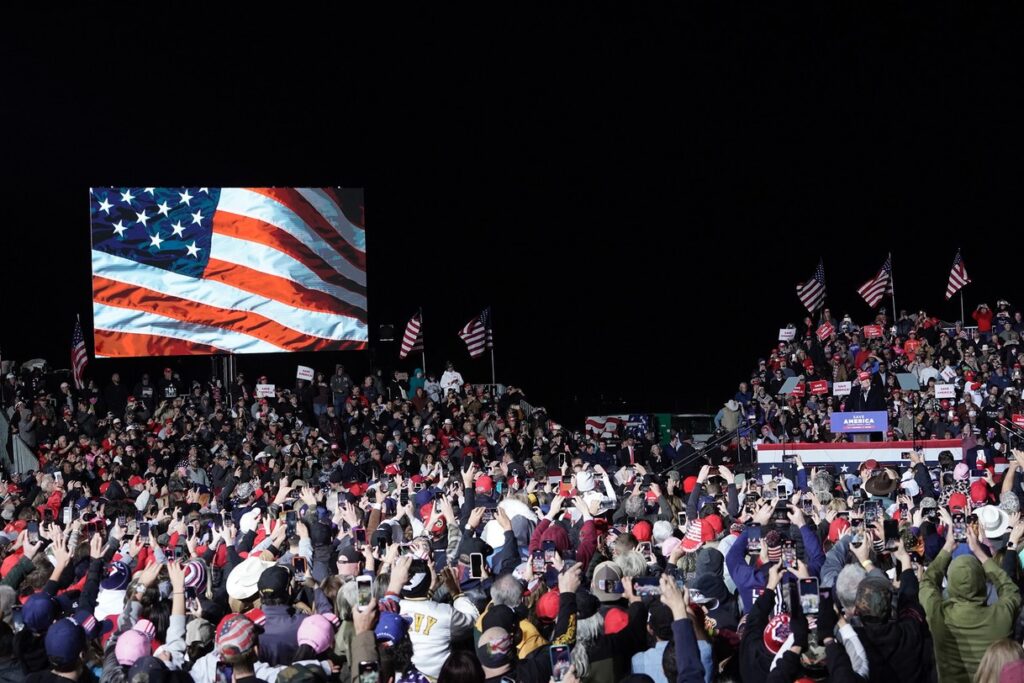
The size of crowd politicians are able to attract is like gasoline on the fire of ambition. The larger the assembly, the higher the flames.
In a ten-year span, Hitler went from organizing rallies where 700,000 loyalists gathered to chant approval of his policies, to barely being able to fill a room with his most dangerous sycophants near the end of his regressing populist regime.
The first objective of a budding dictator is to subvert, or circumvent, the will of the populace. Hitler badly wanted to annex Austria in 1938; it was his birthplace, but also Austria had abundant iron ore reserves that Germany needed to construct their war effort.
Most Austrians preferred to remain autonomous, but in a plebiscite held in April of 1938, 95% of Austrians voted in favour of Anschluss (annexation).
Voting ballot from 10 April 1938. The ballot text reads:
“Do you agree with the reunification of Austria with the German Reich that was enacted on 13 March 1938, and do you vote for the party of our leader Adolf Hitler?”
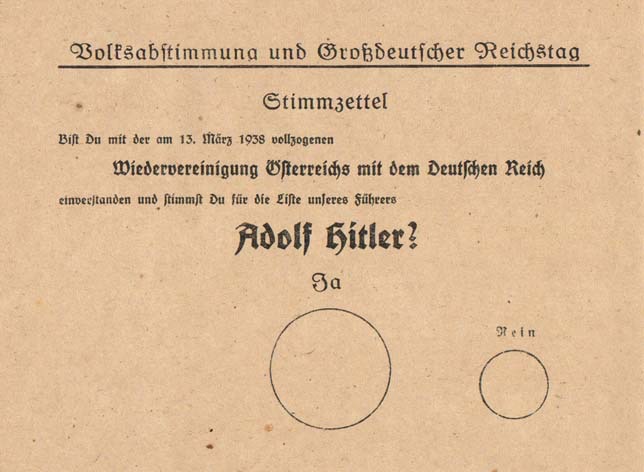
The large circle is labelled “Yes“, the smaller “No“. Uniformed officials were present beside voting booths and received the ballot by hand (in contrast to a secret vote).
Unsurprisingly, very few Austrians marked the smaller circle.
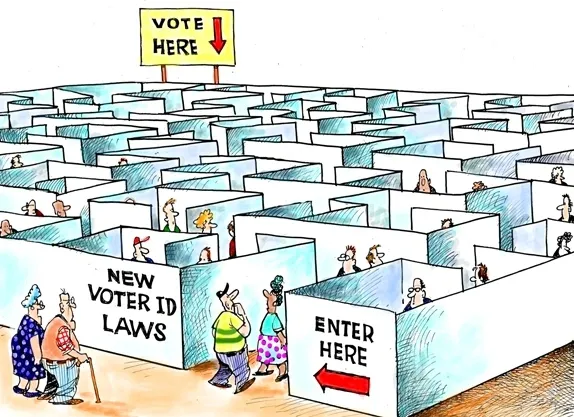
Voter suppression is something every Democratic country must take seriously.
Stirring up hatred was Hitler’s most effective means of drawing the German people to his cause. By encouraging strident nationalism, and promoting the vilification of “others”, he was able to achieve great popularity. Enabling hatred is a tried-and-true method of garnering political power.
We are all genetically programmed to be tribal to some extent; it takes effort to overcome the ingrained human characteristic. Marginalized groups among our population are easily affected by charismatic leaders, with cultish, racist tropes.
“The people can always be brought to the bidding of the leaders. That is easy. All you have to do is tell them they are being attacked.”
– Hermann Göring- 1938

Half of the global population will elect new leaders in 2024/2025.
Economic circumstances play a role in elections, but that is always the case. Elections in Europe, America, and elsewhere this year are focused on Immigration as a primary motivator to determine how people will vote.
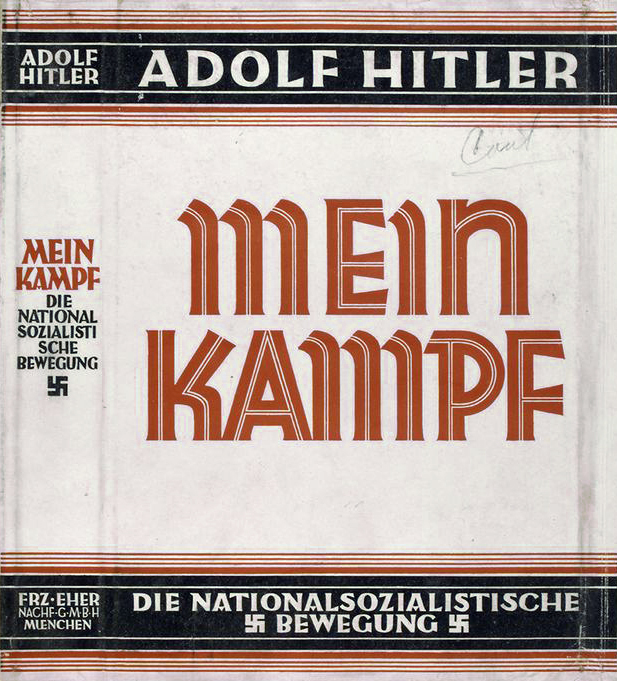
Written in 1924, enacted 1925.
Written in 2024, (potentially) enacted 2025
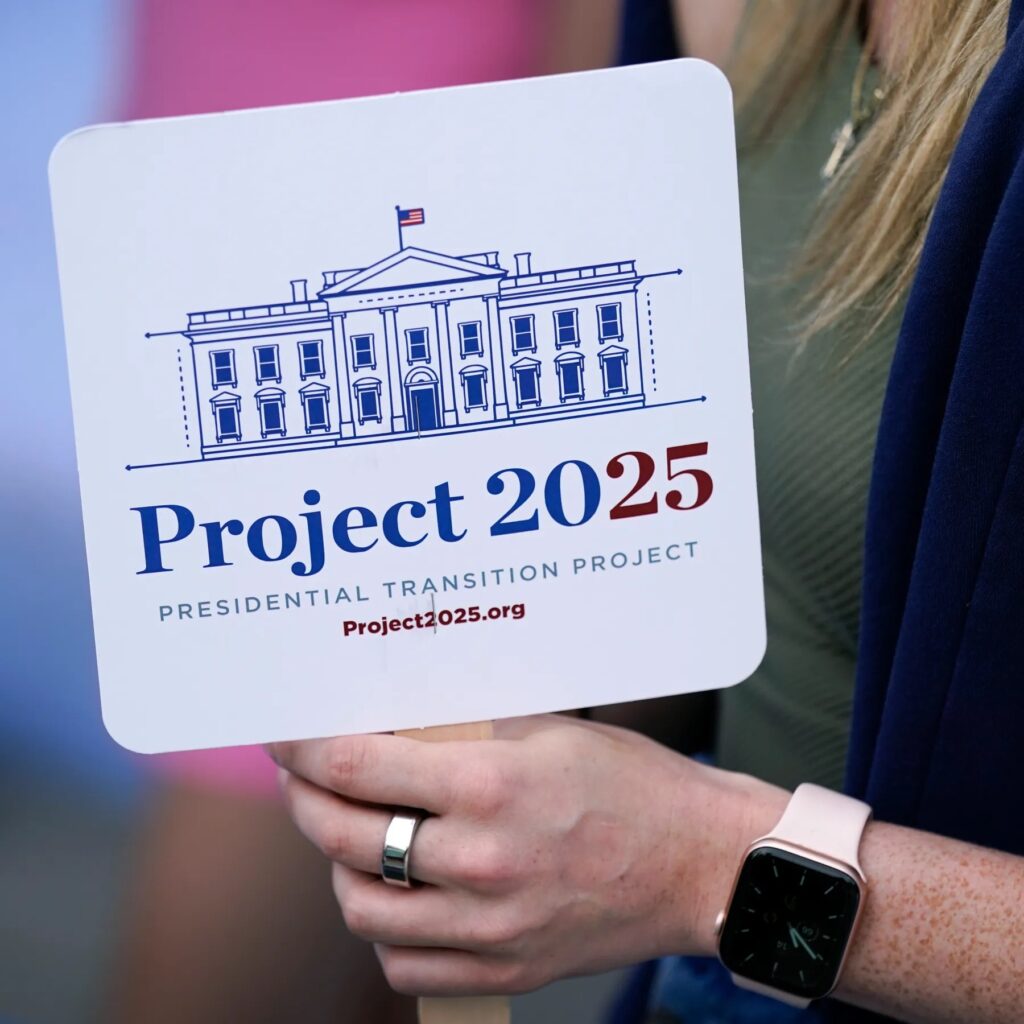
There are 8.2 billion people on earth. With widespread suffering and unrest in much of the world, multitudes of people are looking for a better life in a 1st world country. Developed nations cannot shelter every migrant wanting a better life, but we have an obligation to accommodate who we can, and to facilitate global economic prosperity, to the betterment of humankind.
There are two ways to deal with the changing cultural and economic circumstances we are facing. When people around the world vote this year we have a choice, we can choose …
… Hate, or Hard Work.
Well, that was a bit of a tirade. If you made it this far, and I suspect many won’t, you must have an interest in history and politics.
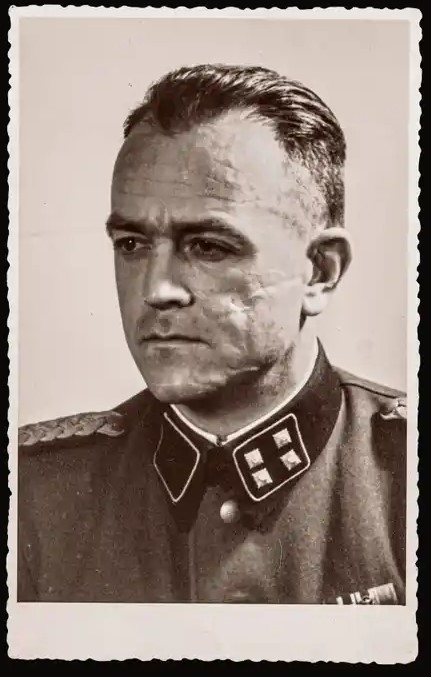
If you do, I highly recommend this podcast. “My Family and Other Nazis” by Martin Pollock. Pollock is an Austrian, whose biological father, Gerhard Bast, was a leading member of the Nazi SS Gestapo, during WWII.
You can read Pollock’s message yourself but, spoiler alert, the moral is, “Ne Verder” …
…“Never Again”
Click here for “My Family and Other Nazis” Podcast.
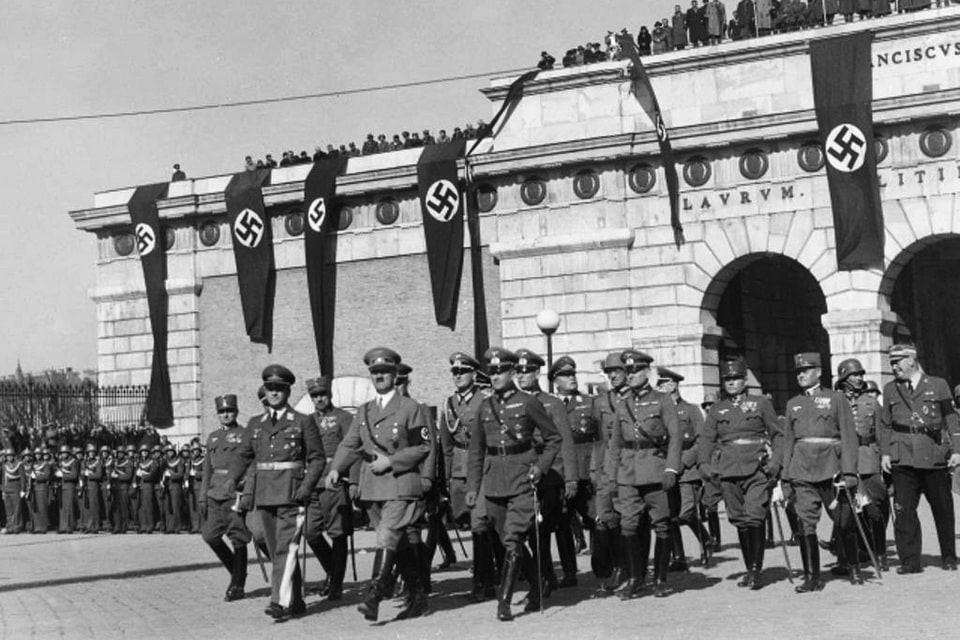


GG
This is an excellent piece, thanks for sharing and reminding me to check it. I’m listening to the podcast, it should be required listening/reading. The term “collective amnesia” is very apt today.
Russ Paton
Thanks, why anybody would want to repeat what happened last century is hard to comprehend.